Attorney:
Boating Accident
Imagine a perfect weekend, out on your boat, soaking up the sun and enjoying the cool breeze. Unexpectedly, the tranquility is shattered by a boating accident, leaving you bewildered, injured, and facing unforeseen medical and legal challenges. In such distressing times, Accident Medical Group is your beacon of hope. We understand the complexities that follow a boating accident – the flurry of medical bills, the distress of lost wages, and the daunting legal maze that awaits. As your trusted partner, we are committed to guiding you through these rough waters, ensuring you receive the justice you deserve and the compensation that is rightly yours. Let Accident Medical Group steer your ship towards calm seas again.
What Floridians Should Know About Boating Accidents
Florida, affectionately known as the Sunshine State, is a boater’s paradise with its stunning coastline and picturesque waterways. However, the very charm of these waters also conceals the danger that lurks beneath its calm surface – the risk of boating accidents. As a Floridian, it’s crucial to arm yourself with knowledge about these unforeseen incidents, understanding not just their causes but also the legal implications that follow. In the following sections, we will delve into the critical points you should be aware of about boating accidents. Let’s set sail on this informational journey.
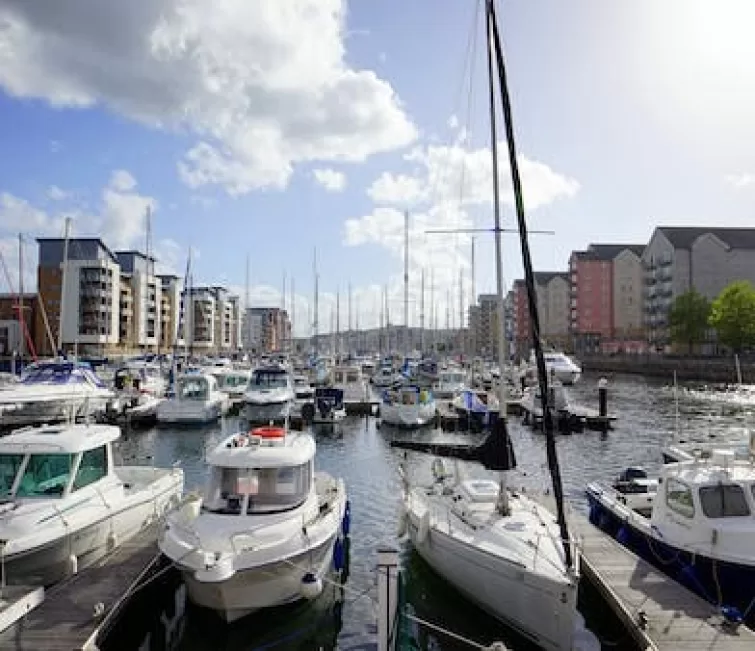
Causes of Boating Accidents
Boating accidents in Florida can occur due to a myriad of reasons, with the most common ones being operator inattention, inexperienced boaters, excessive speed, failure to observe sea rules, and hazardous weather conditions. Knowledge and awareness about these causes can significantly lower the risk of accidents.
Legal Implications of Boating Accidents
Following a boating accident, legal implications can be complex. Florida laws require boaters to report accidents to the Florida Fish and Wildlife Conservation Commission, especially when there is significant property damage, injury, or loss of life. Boat operators may also be liable for damage and injuries, particularly if negligence or violation of boating laws is proven.
Insurance and Compensation
Understanding the role of insurance in boating accidents is vital. If you have boat insurance, it may cover some portion of the damages or injuries. However, each policy is unique, and coverage may vary widely. If the accident was due to another party’s negligence, you might be entitled to compensation, and a boating accident attorney can help navigate these complexities.
Preventive Measures
Prevention is always better than cure. Regular maintenance of your boat, adhering to boating laws, wearing life jackets, abstaining from alcohol while boating, and taking boating safety courses can significantly reduce the risk of accidents. Being prepared and knowledgeable is key to safe and enjoyable boating in Florida.
Boating Accident Laws to Be Aware Of
When navigating through Florida’s beautiful waterways, it’s not only essential to be aware of the potential causes and prevention of boating accidents but also to familiarize yourself with the legal landscape surrounding these incidents. The intricate web of boating laws can seem overwhelming, but fear not, as we are here to illuminate this path for you. Let’s embark on the exploration of significant Florida boating accident laws that you should be mindful of.
Florida Vessel Registration Laws
Florida law requires all vessels operating on Florida waters to be registered. The only exceptions to this rule are non-motorized vessels, vessels used exclusively on private lakes or ponds, and vessels owned by the United States Government. It is crucial to maintain updated registration as failure to do so may lead to fines or penalties, and could complicate matters in the event of a boating accident.
Boating Under the Influence (BUI)
Personal Flotation Devices (PFDs) Law
According to Florida law, children under the age of six must wear a personal flotation device (PFD) at all times when aboard a vessel less than 26 feet in length that is underway. For all others aboard, there must be a readily accessible, US Coast Guard-approved PFD. Non-compliance with this law can result in penalties and may affect the outcome of legal proceedings if a boating accident occurs.
Boating Accident Reporting Laws
Any boating accident that results in death, disappearance, injury requiring medical treatment beyond first aid, or property damage exceeding $2,000 must be reported to the Florida Fish and Wildlife Conservation Commission. Failure to report such incidents can lead to legal consequences and may hinder the pursuit of compensation claims after a boating accident.

What Happens When You Have a Boating Accident?
When the unexpected happens and you find yourself involved in a boating accident, it can be a stressful and disorienting experience. It’s natural to feel overwhelmed, but knowing what steps to take can equip you with the readiness to handle the situation effectively and ensure your rights are protected. Let’s delve into the process that unfolds after a boating accident, and the critical actions you need to take.
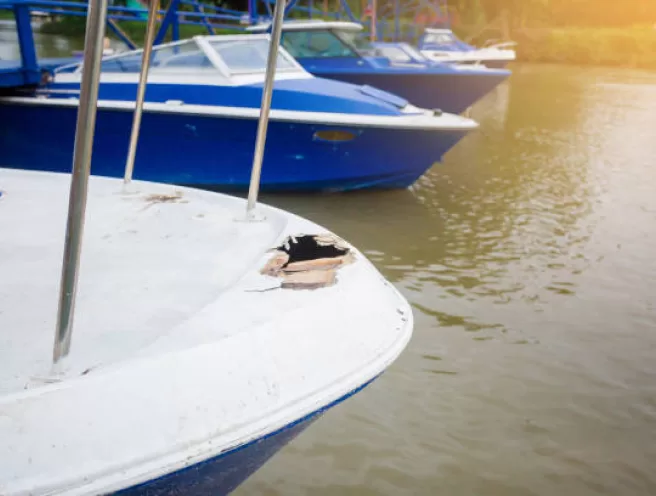
Immediate Actions Post-Accident
In the immediate aftermath of a boating accident, your first priority should be to ensure the safety of everyone involved. Check for injuries and call for medical assistance if needed. If possible, move your vessel away from further harm.
Reporting the Accident
Once everyone’s safety is ensured, it’s time to report the incident. Contact the Florida Fish and Wildlife Conservation Commission to inform them of the accident. Be prepared to provide details about the incident, such as the time and location, the vessels involved, and any injuries or property damage.
Documenting the Incident
In parallel to reporting the accident, it’s critical to document the incident for future reference. This includes taking photos of the accident scene, noting down details of the incident, and collecting contact and insurance information from all parties involved.
Contacting Your Insurance Company
Next, get in touch with your insurance company to report the accident. Provide them with all the required information and cooperate fully with their investigation.
Seeking Legal Assistance
Depending on the extent of the accident and the associated damages or injuries, you may need to seek legal assistance. A lawyer with experience in maritime law can help you navigate through the legal complexities that may arise following a boating accident.
Follow-Up Activities
Finally, you need to undertake follow-up activities such as repairing or replacing your boat, completing any necessary boating safety courses, or dealing with legal proceedings. It is crucial to remember that getting back on the water should always be accompanied by reinforced safety practices.v
A Family Member Had a Boat Accident. What Now?
When a loved one experiences a boating accident, the aftermath can feel chaotic and overwhelming. It’s a distressing situation that calls for calm minds and methodical actions. Understanding what to do in such circumstances is essential to protect their legal rights and ensure they receive the necessary support. Let’s explore how to navigate this challenging journey, step by step, to make the process manageable and ensure the best possible outcome.
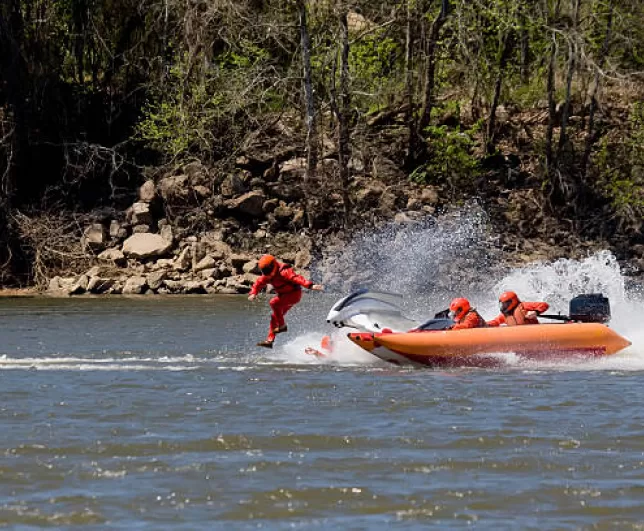
Immediate Response
The first step in this situation is responding immediately and appropriately. This includes making sure your loved one is safe and receives necessary medical attention if required. Depending on the severity of the accident, they might need to be transported to a medical facility for emergency treatment.
Contacting Insurance Company
Inform the insurance company about the accident as soon as possible. Provide them with all necessary information and cooperate with their investigation to ensure a smooth claims process.
Preserving Evidence
Next, it is crucial to preserve as much evidence from the accident scene as possible. This includes photos of the accident scene, the boat, and injuries sustained. If possible, gather witness testimonies and their contact information as they could provide valuable perspectives on the incident.
Seeking Legal Counsel
Given the different legal complexities involved in boating accidents, it might be beneficial to consult with a maritime law attorney. They can provide guidance on legal rights and potential compensation and can help navigate through the claims process with the insurance company.
Reporting the Incident
The incident must be reported to the relevant authorities as per Florida law. This includes the Florida Fish and Wildlife Conservation Commission, local police, and the Coast Guard. Ensure you provide accurate and detailed information about the accident.
Support System
Lastly, it’s important to provide emotional support to your loved one. The aftermath of an accident can be distressing and traumatic. Being there for them, listening to their worries, and providing reassurance can play a key role in their recovery journey.
Steps to Follow After a Boating Accident
Boating accidents can be a harrowing experience, leaving one disoriented and unsure about the next course of action. The steps taken after such incidents are critical, not only for legal and insurance purposes but also for personal recovery and returning to normalcy. Below, we outline a comprehensive, step-by-step guide to follow if you find yourself in the unfortunate occurrence of a boating accident. Each step outlines key actions and considerations, designed to ensure your safety, protect your legal rights, and streamline the process of dealing with the aftermath.
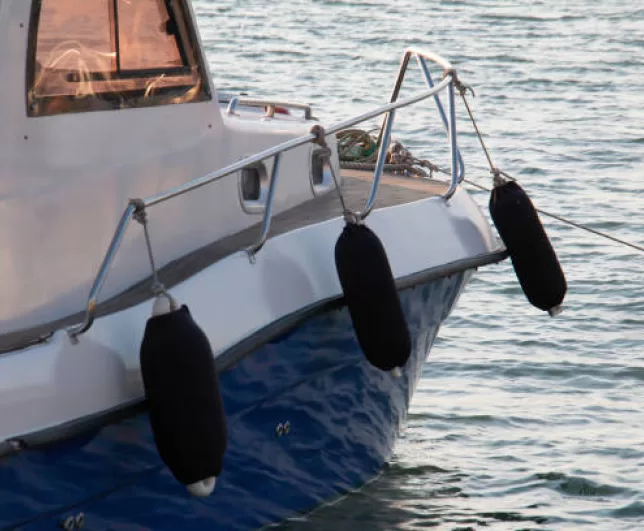
Assessing the Damage
Once everyone’s safety is ensured and the relevant authorities and insurance companies have been informed, the next step is to assess the damage. This covers the physical damage to your boat and any other property, as well as any injuries suffered. It’s essential to document all damage meticulously, as this information will form the basis of your insurance claim and any potential legal proceedings.
Initiating the Insurance Claim
Initiate the insurance claim process as soon as possible. Provide your insurance company with comprehensive documentation of the damage, including photographs and repair estimates. Be prepared for a likely inspection of your boat by an insurance adjuster. Cooperate fully with the adjuster and answer all questions truthfully.
Engaging with Legal Proceedings
If there are significant damages or injuries or if the accident involved other parties, there may be legal proceedings to consider. Engage a lawyer with expertise in maritime law to guide you through the process. They can help you understand your rights, advise on potential compensation, and represent you in any lawsuit related to the accident.
Undertaking Repairs or Replacement
Based on the outcome of the insurance claim, you will need to undertake repairs or replace your boat. It’s recommended that repairs are done by a certified boat repair professional to ensure quality and safety. If the boat is deemed a total loss, you will need to work with your insurance company to receive a replacement.
Revisiting Safety Procedures
Finally, before getting back on the water, revisit your boating safety procedures. Regardless of the cause of the accident, it’s important to learn from the incident and reinforce safety practices. Consider enrolling in a boating safety course or consult with a maritime expert to ensure all necessary precautions are in place for future outings.

Recovering Compensation After a Boating Accident
Boating accidents can result not only in physical and emotional distress but also significant financial implications. Recovering compensation to cover the costs incurred as a result of the accident is a crucial aspect of the aftermath. The process can be complex, involving insurance claims, potential legal proceedings, and negotiations. It is imperative to understand how to navigate this terrain effectively. Let’s delve into the key aspects to consider in the journey toward recovering compensation after a boating accident.
Understanding Your Rights
Understanding your legal rights is the first crucial step toward recovering compensation. This involves exploring provisions under maritime law, personal injury law, or insurance law that apply to your situation. A maritime law attorney can provide valuable guidance in interpreting and leveraging these laws to your advantage.
Documenting All Costs
Documenting all costs related to the boating accident can help in building a strong case for compensation. This includes medical bills, repair or replacement costs for the boat, lost wages due to time off work, and any other expenses incurred. Ensure to keep all receipts, invoices, and related documents as proof of these costs.
Filing an Insurance Claim
Filing an insurance claim is an integral part of the compensation recovery process. This involves submitting all relevant documents and evidence to your insurance provider. Be thorough in your documentation to ensure a comprehensive claim. It’s advisable to consult with your attorney during this process to ensure you’re adequately represented.
Negotiating Settlement
Often, insurance companies may offer a settlement to resolve the claim. It’s important to carefully review this offer with your attorney to ensure it fully covers all your costs and damages. If the offer doesn’t meet your needs, your attorney can negotiate on your behalf for a more favorable settlement.
Considering Legal Action
If negotiations with the insurance company are unfruitful, or if another party is at fault for the accident, you may need to consider legal action. This could involve filing a lawsuit against the negligent party or taking the insurance company to court to secure fair compensation. Legal proceedings can be lengthy and complex, requiring expert guidance from a maritime law attorney.
Receiving Compensation
Once a settlement is reached or a court verdict is given, the final step is receiving the compensation. The timeline and method of receiving this compensation may vary based on the terms of the settlement or court order. Consult with your attorney to understand how and when you will receive your compensation.
Dealing with Insurance After a Boating Accident
Navigating the labyrinth of insurance claims after a boating accident can often be a complex and challenging task. It involves understanding the details of your policy, filing a comprehensive claim, and possibly even negotiating a fair settlement. Moreover, this process is instrumental in recovering the necessary compensation for damages and costs incurred due to the accident. In the following sections, we will delve into a detailed guide on dealing with insurance post a boating accident, providing insights and recommendations to ensure a smooth and favorable outcome.Navigating the labyrinth of insurance claims after a boating accident can often be a complex and challenging task. It involves understanding the details of your policy, filing a comprehensive claim, and possibly even negotiating a fair settlement. Moreover, this process is instrumental in recovering the necessary compensation for damages and costs incurred due to the accident. In the following sections, we will delve into a detailed guide on dealing with insurance post a boating accident, providing insights and recommendations to ensure a smooth and favorable outcome.
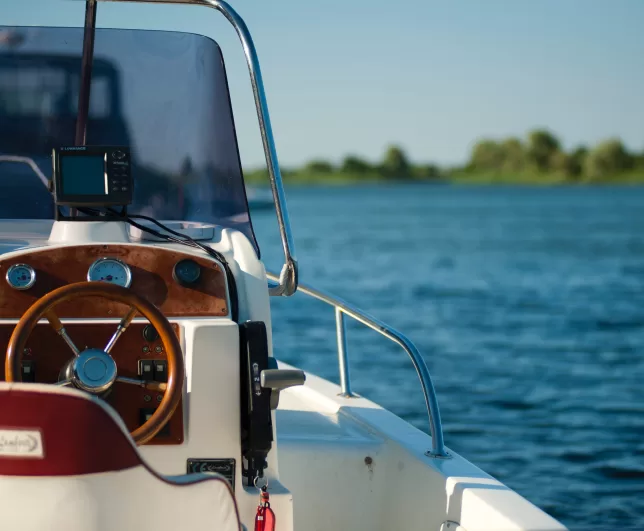
Understanding Your Insurance Policy
Understanding the details of your insurance policy is the first step in dealing with insurance after a boating accident. Know what your policy covers, what it does not, and the specific procedures to follow when filing a claim. This will streamline your claims process and help you maximize your claim amount.
Reporting the Incident to Your Insurer
Once you have a clear understanding of your insurance policy, report the incident to your insurance company as soon as possible. Timely reporting is often a condition required by insurance policies. Provide all the necessary details and cooperate fully with the insurance representatives.
Collecting and Submitting Evidence
Gather all possible evidence related to the accident. This may include photographs of the damage, witness testimonies, police reports, and medical records in case of personal injury. Submit this evidence along with your claim to strengthen your case and improve your chances of receiving a fair settlement.
Working with an Insurance Adjuster
An insurance adjuster will likely inspect the damage to your boat and possibly the accident site. Cooperate fully with the adjuster, provide all requested information, and answer all questions honestly. This will help in the accurate determination of the claim amount.
Negotiating the Claim Settlement
After the adjuster’s inspection, your insurer will propose a settlement amount. If you believe this amount is not fair, you have the right to negotiate. You may want to consider hiring a lawyer or a public adjuster to assist with negotiations.
Receiving Compensation
Finally, upon agreement of the claim amount, you will receive compensation. The payout method will depend on your insurance company’s policies. Be sure to understand when and how you will receive this compensation. If there are delays or issues, don’t hesitate to follow up with your insurer.

Boating Accidents Can Have Financial Consequences
Boating accidents, apart from their immediate and alarming physical consequences, often carry with them significant financial implications. These can include unexpected medical bills, costs for boat repair or replacement, lost income due to time off work, and other related expenses. Managing these financial consequences can be a burdensome task, particularly when dealing with the aftermath of a traumatic accident. Understanding the potential economic impact of a boating accident can help in better preparation for such events and in crafting a robust recovery plan. Let’s dive deeper into the potential financial consequences of boating accidents and how to manage them effectively.
Medical Expenses
Medical expenses often form a significant portion of the financial impact resulting from a boating accident. These can range from immediate emergency care costs to ongoing medical bills for long-term rehabilitation or treatment. It’s crucial to keep track of all medical expenses related to the accident as they could be included in a claim for compensation
Damage to the Boat
The physical damage to the boat can also lead to substantial financial costs. These could include repair costs if the damage is minor, or replacement costs if the boat is totaled. It’s important to have the boat professionally assessed to accurately estimate these costs.
Lost Income
If the accident results in significant injuries that require time off work, a loss of income can be another major financial consequence. This not only includes immediate lost wages but also future earning potential if the injuries result in a long-term disability.
Other Related Expenses
Apart from the direct costs, there are often other related expenses that can arise from a boating accident. These might include costs for psychological counseling, travel expenses for medical appointments, and even home modifications if the accident results in a disability.
Insurance Claims
Insurance claims can provide some financial relief to cover these costs. This process involves reporting the accident to the insurance company, submitting evidence, and potentially negotiating a settlement. It’s advisable to get professional assistance to navigate this process.
Potential Legal Action
In some cases, if another party is at fault for the accident, it may be necessary to take legal action to recover costs. This can involve filing a lawsuit against the negligent party and could result in a court verdict awarding compensation. However, this process can be lengthy and complex, and professional legal assistance is usually required.
How Can a Boating Accident Lawyer Help Me?
A boating accident lawyer can provide essential legal assistance in the wake of the accident, helping to alleviate some of the stress and confusion often involved in dealing with insurance matters and potential litigation. Their expertise and experience in this specialized legal area can greatly improve the chances of securing fair and just compensation for all the damages and costs incurred. In the following sections, we will explore some of the key ways in which a boating accident lawyer can assist you.

Understanding of Maritime Laws
AMG’s team of experienced boating accident lawyers have a comprehensive understanding of maritime laws and regulations. This specialized knowledge is critical when dealing with boating accident cases, as these laws can significantly influence the outcome of insurance claims and lawsuits.
Handling Insurance Claims
Navigating the insurance claims process can be complex and time-consuming. AMG lawyers are adept at handling all aspects of this process, from filing the initial claim to negotiating a fair settlement. They can help ensure that all necessary documentation is correctly submitted, potentially expediting the claims process and maximizing your compensation.
Providing Legal Representation
If your case leads to a lawsuit, having a skilled legal representative by your side can make a significant difference. AMG lawyers can build a robust case, presenting compelling evidence and arguments to hold negligent parties accountable and secure the compensation you’re entitled to.
Offering Emotional Support
Dealing with the aftermath of a boating accident can be emotionally draining. AMG lawyers provide not only legal assistance but also emotional support, helping clients cope with the stress and trauma of the accident and the subsequent legal proceedings.
Ensuring Full Compensation
AMG lawyers are committed to ensuring their clients receive full compensation for their damages. This includes not only direct costs like medical expenses and boat repairs, but also indirect costs such as pain and suffering, emotional distress, and lost enjoyment of life. Their relentless advocacy aims at making sure no legitimate element of your claim is overlooked.
No Upfront Fees
It’s also important to note that AMG operates on a contingency fee basis, meaning you won’t owe any legal fees unless they successfully recover compensation on your behalf. This practice allows you to seek justice without worrying about upfront costs.

Contact (305)-264-4357 About Your Boating Accident
Don’t let the aftermath of a boating accident overwhelm you. Reach out to our dedicated team at 305-AMG-HELP. Our experienced boating accident lawyers are ready to provide the legal guidance and emotional support you need. We are committed to helping you navigate through this difficult time and ensuring that you receive the maximum compensation you deserve for your losses. Take the first step towards recovery and justice today. Remember, there’s no financial risk involved – you won’t owe us anything unless we win. Make the call. We’re here to help.
